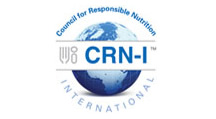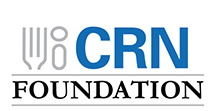The dietary supplement industry is regulated on a federal level in the U.S. by the Food and Drug Administration (FDA) and the Federal Trade Commission (FTC) as well as by government agencies in each of the 50 states.
Nearly all facets of dietary supplement manufacturing, labeling and marketing are covered by extensive regulations issued and enforced by FDA and FTC.
The FDA has regulatory authority under the Federal Food, Drug and Cosmetic Act as amended in 1994 by the Dietary Supplement Health and Education Act (DSHEA) and in 2006 by the Dietary Supplement and Nonprescription Drug Consumer Protection Act. Under DSHEA, dietary supplements are regulated as a category of food. FDA regulates both finished dietary supplement products and dietary ingredients. By law, it is illegal to manufacture or market dietary supplement products that are adulterated or misbranded and FDA has regulatory authority to remove such products from the marketplace. CRN supports strong enforcement of DSHEA by FDA.
Read more in this article by CRN's Steve Mister: Dietary Supplements and Public Safety: A Defense of DSHEA’s “Three-Legged Stool”
The FTC regulates dietary supplement advertising as it does for all consumer products by enforcing truth-in-advertising laws and it applies the same standards across all forms of advertising, whether in newspapers, magazines, online, in the mail or on billboards and buses. Federal law says that ads must be truthful, not misleading, and backed by scientific evidence, especially when health claims are used.
In addition to complying with a host of federal and state regulations governing dietary supplements and food in the areas of manufacturing, quality control, labeling, safety and marketing, CRN member companies also engage in self-regulatory practices, adhering to a strong code of ethics as well as voluntary guidelines and best practices.

* A 1971 Memorandum of Understanding between the FDA and FTC gives FTC primary jurisdiction over advertising of FDA-regulated products, but with caveats for certain distinct categories (e.g., prescription drugs). The prevalence of online advertising, however, has blurred the lines between “advertising” and “labeling,” meaning FDA will often look at the legality of claims made online in the context of “labeling” For dietary supplements, FTC generally takes the lead to review substantiation, whereas FDA is primarily concerned with whether a supplement claim is not an illegal disease claim.
** FDA oversees “restricted” medical devices.



